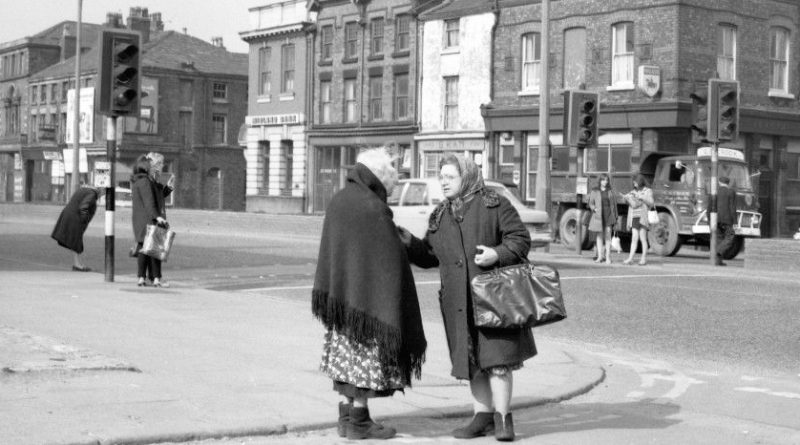As historic pub goes up for sale, Auxiliary Bishop of Liverpool speaks of his fond memories of city’s famous ‘Scotty Road’
At its peak, the area around Liverpool’s Scotland Road was home to more than 200 pubs, but last orders could soon be called on what was once the beating heart of the city.
The Throstles Nest, which opened in 1804, is the last remaining pub on what is affectionately known locally as “Scottie Road” and has recently been put up for sale. The pub is next door to the 19th century St Anthony’s Catholic Church, one of only two remaining Catholic churches in the locality. At one time there were 17.

Now part of the A59, the road runs for about a mile through Vauxhall and into the city centre. It took its name from the original stagecoach route it was once part of and remains one of the city’s busiest thoroughfares.
However, the area around it has been in steady decline since the 1960s, when rehousing and road development schemes started a population decline that saw residency fall by 67% in 20 years.
Previously surrounded by rows upon rows of tenements, ice cream parlours, tailors, grocers, pubs and cinemas and a stone’s throw from the childhood home of one of the city’s most famous daughters, Cilla Black, the Throstles Nest is now a lone outpost from a bygone era.
On the night Liverpool faced Rangers in the Champions League, the sort of football match that would have previously seen thronging fans pack into the pub, just three people were in its saloon bar.
Landlord Kevin McMullen, who has owned the pub for 40 years, has vivid memories of its heyday.
“You wouldn’t be able to see the door for people,” the 78-year-old said.
Referencing the bustling Barcelona street of bars, he said the road had been like “a poor man’s Las Ramblas”.
“Those who’d been moved out to Norris Green and Kirkby would all walk down, it was jampacked,” he said, adding that anyone who attempted a crawl of the road’s many pubs would “always fail miserably [as] they couldn’t get through them all”.
The area had such a high number of Irish immigrants arrive in the 19th Century that it was the only place outside of Ireland to ever have been represented by a Irish Nationalist Party MP.

A Memorial plaque in St Anthony‘s church listing the men & women of #Liverpool who fought for Irish freedom in the 1916 Easter Rising.
The Right Reverend Tom Williams, Liverpool Auxiliary Bishop, was born just off Scotland Road and was once the parish priest at the Church of St Antony’s, which neighbours the Throstles Nest.

“I knew the area by its cinemas, pubs and churches, all of those have gone,” he said.
“Things started closing around 1962, when I first went to college.
“Each time I came back, something else had gone.”
Liverpool City Council’s Deputy Mayor Jane Corbett, who represents the area on the authority, said her predecessors “didn’t get everything right” when it came to town planning.
“Big decisions were made back in the ’60s and ’70s that didn’t involve community,” she said.
“It wasn’t a coherent strong neighbourhood plan.
“For planning and housing policies to work, they have to work collaboratively with the community.
“But there are strong communities either side of Scotland Road that will always achieve much, sometimes against appalling odds.”
She added that the sale of the pub was a “sad moment”, as it was “a key landmark”.
_________________
To read the full story, go to:
https://www.bbc.co.uk/news/uk-england-merseyside-63145686

